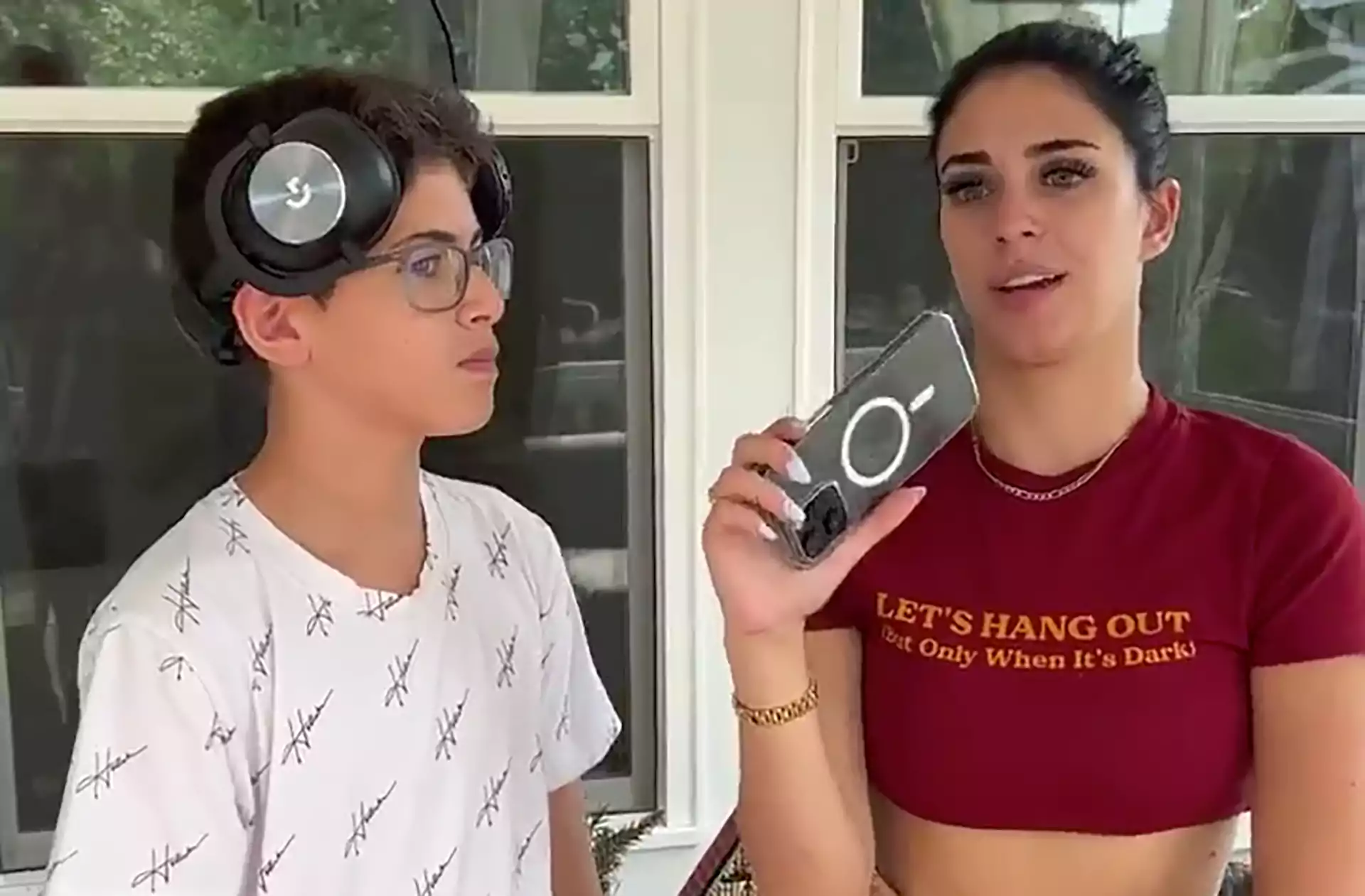Has the digital age truly become a double-edged sword, offering unprecedented connectivity while simultaneously eroding the very foundations of personal privacy? The recent controversy surrounding Camilla Araujo serves as a stark reminder that the price of online visibility can be devastating, and the illusion of control in the digital realm is often fragile.
The name "Camilla Araujo" has become synonymous with a digital firestorm, a controversy that has ignited discussions across social media platforms, news outlets, and legal circles. The core of the issue revolves around the unauthorized dissemination of private content, an event that has cast a harsh light on the vulnerabilities inherent in the digital age, and the ethical quagmire of content creation and consumption.
Araujo, a Brazilian model and social media influencer, has cultivated a substantial following on platforms like OnlyFans, where she shares exclusive content with subscribers. The emergence of leaked private photos and videos, however, has propelled her name into the global spotlight, albeit under dramatically different circumstances. The unauthorized distribution of these materials, which reportedly includes intimate content, has caused significant distress and damage to her reputation, illustrating the precarious nature of online privacy, particularly for those in the public eye.
- South Indian Films Dubbed In Hindi Where To Watch More
- Vegamovies 18 Alternatives Stream Movies Securely Legally
| Category | Details |
|---|---|
| Full Name | Camilla Araujo |
| Occupation | Model, Social Media Influencer, Content Creator |
| Nationality | Brazilian |
| Known For | Sharing exclusive content on platforms like OnlyFans. |
| Controversy | The unauthorized distribution of private photos and videos. |
| Online Presence | Active on social media platforms such as Twitter, Reddit, Instagram, and OnlyFans (Linktree and OnlyFans links available online). |
| Recent Events | Involved in a controversy due to leaked private content. |
| Digital Footprint | Active on various social media platforms where she shares photos and videos. |
| Ethical Considerations | The unauthorized sharing of private content has raised ethical considerations regarding privacy, consent, and the responsibility of online platforms. |
| External References | Example External Link (Replace with a credible source) |
The "Camilla Araujo leaks," as they have become known, have become a focal point for broader conversations about consent, digital privacy, and the responsibility of social media platforms in safeguarding user content. The incident serves as a stark reminder of the vulnerabilities that come with fame, highlighting the pressing need for improved security measures for personal data, and the ongoing need for open and honest discussions surrounding privacy in the digital age.
The genesis of the leak appears to trace back to the alleged breach of a cloud storage account. Cybersecurity experts suggest the breach could have resulted from several factors, including weak passwords, hacking attempts, or potentially, inside leaks from trusted individuals. Regardless of the precise origin, the incident underscores the inherent risks associated with storing sensitive data online, and the constant threat of unauthorized access.
The impact of the leaks has been multifaceted. Beyond the personal distress inflicted upon Araujo, the incident has sparked a wider debate about the ethics of content consumption, the responsibilities of social media platforms, and the legal protections available to content creators. The conversation extends to the complexities of consent in the digital age, and the often-blurred lines between public and private spheres.
- Heaven Officials Blessing Season 3 Release Plot News
- Bloodhound Lil Jeffs Tragic Death A Chicago Drill Scene Loss
The incident of the leaked content has spurred varied reactions, with many expressing dismay and support for Araujo. This underscores the empathy felt for the influencer in the face of such a violation. Discussions about the ethics of consuming leaked content and the responsibilities of fans in supporting creators have come to the forefront. The issue also compels us to examine the role of the media and how they cover such events, the potential for sensationalism, and the need for balanced reporting that respects the privacy of the individuals involved.
Araujo's remarks, including her sarcastic praise of a leaked tape, ignited further controversy, drawing criticism for her approach. Her comments, though perhaps intended as a defense mechanism, served to escalate the public interest and amplify the discourse surrounding the leaks. This highlights the complex interplay between the individuals involved, the online communities that form around such events, and the media coverage that shapes public perception.
The incident is a direct result of the vulnerabilities content creators face in the digital age, including privacy breaches and ethical dilemmas. The leaks underscore the need for stronger safeguards and a collective commitment to supporting creators. Platforms like OnlyFans, which rely on the sharing of intimate content, are forced to grapple with the consequences of such breaches and the need for comprehensive security protocols.
The "Camilla Araujo leaks" are a case study in the challenges of the digital age. The incident underlines the need for a multi-faceted approach. This includes implementing robust security measures, promoting digital literacy, advocating for stricter legal frameworks, and fostering a culture of respect and responsibility online. The experience serves as a catalyst for ongoing conversations about the delicate balance between freedom of expression, individual privacy, and the need for a safe and ethical online environment.
The incident has sparked conversations about the ethics of consuming leaked content and the responsibilities of fans in supporting creators. This includes the importance of respecting creators' rights, and the potentially harmful effects of engaging with leaked content. It serves as a call to action for individuals to carefully consider their online behavior, and the ethical implications of their choices.
The impact of the leaks extends beyond Araujo and those directly involved. The incident highlights the systemic challenges of content creation in the digital age. From privacy breaches to ethical dilemmas, these issues highlight the need for stronger safeguards and a collective commitment to supporting creators.
The rapid dissemination of the leaked content, made possible by social media platforms like Twitter, Reddit, and Instagram, has amplified the impact of the incident. The viral nature of the content underscores the power of these platforms to shape public opinion and spread information, often with little regard for privacy or consent. Social media's role in the situation demands a critical examination of content moderation policies, and the need to combat the spread of non-consensual content.
The incident has also brought attention to the legal aspects of online privacy. The unauthorized distribution of private content constitutes a violation of privacy, and potential legal recourse for those affected. The legal frameworks surrounding digital privacy are constantly evolving, and incidents like the "Camilla Araujo leaks" often serve as catalysts for legal reform.
The discussions surrounding the leaks highlight the need for better security measures for personal data and the ongoing discussions surrounding privacy in the digital age. It is crucial for individuals to take proactive steps to protect their personal information, including using strong passwords, enabling two-factor authentication, and being wary of phishing scams. Online platforms also have a responsibility to implement robust security measures to protect their users from data breaches and unauthorized access.
The incident also emphasizes the importance of digital literacy. It highlights the need for education about online privacy, digital safety, and ethical behavior. It is essential for individuals to understand the risks associated with sharing personal information online, and the potential consequences of their online actions. Education is vital in empowering individuals to navigate the digital landscape responsibly and safely.
The unauthorized sharing of private photos and videos of Araujo, which were leaked online without her consent, caused significant distress and damage to her reputation. The incident serves as a reminder of the vulnerabilities that come with fame and the need for better security measures for personal data. It also highlights the importance of respecting privacy in the digital age and the need for legal protections for content creators.
The case of Camilla Araujo serves as a harsh reminder of how easily personal privacy can be violated in the digital age. It also reinforces the critical importance of online privacy, personal security, and the need for a collective commitment to support content creators. By examining the ethical considerations, the potential legal recourse, and the need for responsible platform usage, society can strive to create a more secure and respectful online environment. The incident also serves as a call for ongoing conversations about the balance between free expression, individual privacy, and the need for a safe and ethical online experience, ensuring that platforms, individuals, and creators all contribute to a safer and more responsible digital future.


